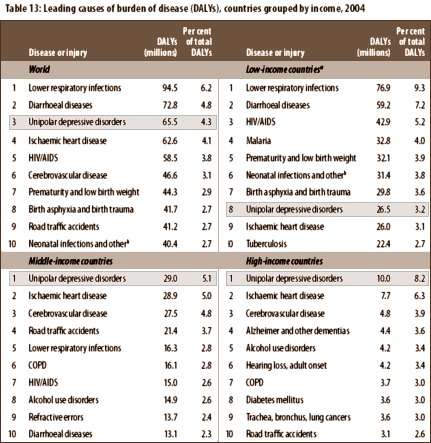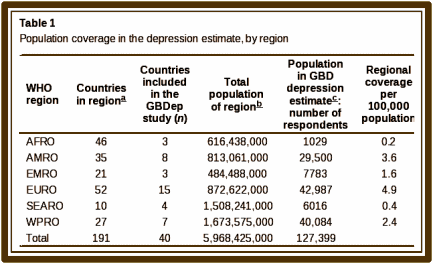Psychiatric Drug Development: Diagnosing a Crisis
The Dana Foundation: Cerebrum
By Steven E. Hyman
April 02, 2013
[full text available on-line]During the past three years the global pharmaceutical industry has significantly decreased its investment in new treatments for depression, bipolar disorder, schizophrenia, and other psychiatric disorders.1 Some large companies, such as GlaxoSmithKline, have closed their psychiatric laboratories entirely. Others, such as Pfizer, have markedly decreased the size of their research programs. Yet others, such as AstraZeneca, have brought their internal research to a close and are experimenting with external collaborations on a smaller scale.
This retreat has occurred despite the fact that mental disorders are not only common worldwide, but also increasingly recognized by healthcare systems. There is, moreover, vast unmet medical need, meaning that many individuals with mental disorders remain symptomatic and often disabled despite existing treatments. For example, people suffering with the depressed phase of bipolar disorder often continue to experience severe symptoms even when they take multiple medications with serious side effects. For some significantly disabling conditions, such as the core social deficits of autism and the cognitive impairments of schizophrenia, there simply are no effective treatments. Because mental disorders are highly prevalent and our ability to treat them remains limited, these illnesses cause enormous societal burden. In aggregate, they are the world’s leading cause of disability.²…
Global Burden of Disease estimates of depression – how reliable is the epidemiological evidence?
by Petra Brhlikova, Allyson M Pollock, and Rachel Manners
Journal of the Royal Society of Medicine. 2011 104(1): 25–34.
[full text available on-line]
… Of the 40 countries with data, 22 countries did not have nationally representative data and the national representativeness of the included studies could not be determined for a further six countries. In EURO, the region with the highest coverage, only six of 15 studies had a nationally representative sample. The three AFRO studies were based on a small village or town. Likewise South-East Asia region had data on only four countries but none of the samples were nationally representative. Of the 6016 respondents: 5145 were in one Indian state (Andhra Pradesh); 612 from three constituencies in Singapore; 259 from a semi-urban village in Pakistan and Nepal could not be ascertained (Table 2). Overall, only 12 of the 36 (33%) studies for which we have data used a nationally representative sample.
… GBDep estimates have limited value in international policy-making. GBDep estimates are epidemiologically flawed in terms of representativeness and quality. Recent research initiatives focus on improving data collection and methods for the 2010 update of GBD estimates but there is a need to put in place disease surveillance and vital registration systems in advance of such studies.34 This review provides a template for evaluating the quality of the studies used in 2010 estimates. Moreover, for neuropsychiatric disorders such as depression where the pathophysiologic process cannot be directly observed but must be inferred, there is a need to be sensitive to the numerous interpretative difficulties in determining rates of disease and better understanding of depression in the context of cultural, sociological and economic conditions. Single composite measures of depression are highly problematic: they conceal and hide uncertainty, compromise biases and distortions in epidemiological data. Crucially single measures of disease burden distance mental well-being from the social determinants of health such as poverty and economic status and fail to recognize their cultural and social significance let alone their interaction with other disease states.
Psychiatry, The Pharmaceutical Industry, and The Road to Better Therapeutics
by H. Christian Fibiger
Schizophrenia Bulletin. 2012 38(4):649–650.
[full text available on-line]… The discovery of all three major classes of psychiatric drugs, antidepressants, antipsychotics, and anxiolytics, came about on the basis of serendipitous clinical observation. At the time of their discoveries, the mechanisms by which these molecules produce their effects were unknown, and it was only later that antipsychotics were shown to be D2 receptor antagonists, antidepressants monoamine reuptake inhibitors, and anxiolytics GABA receptor modulators. It is interesting and perhaps instructive to consider whether any of these classes of drugs could have been discovered by current drug discovery strategies…
What the field lacks is sufficient basic knowledge about normal brain function and how its disturbance underlies the pathophysiology of psychiatric disease. Because of this, as the record now clearly shows, it remains too early to attempt rational drug design for psychiatric diseases as currently conceived. The most obvious solution here is expanded investment in neuroscience. By necessity, this will be driven primarily by the efforts of clinical and basic scientists in academic settings because industry no longer has the appetite or the resources to engage in such activities. It is worth emphasizing that industry is in the business of making drugs, knowledge sometimes being a fortuitous byproduct. Academia is in the business of generating knowledge, and knowledge is what is needed at present…
Lost in the wailing is a clear understanding that the defecting corporations are acting out of their own enlightened self interest. For 50 years, no fundamentally incisive innovations have occurred, so the defectors are telling the academics to get their act together in respect of better understanding disease mechanisms. Trouble is, too many academic clinical investigators have devolved into key opinion leaders promoting corporate marketing messages at the expense of generating original clinical science. Now they are squawking about being caught with their pants down…
However, payers [both insurance companies and governments] and regulatory agencies have given up their willingness to accept even more expensive new drugs that, despite marketing efforts, have turned out to be no more than variations on very old themes.
- chemical imbalance
- global burden of depression
- SSRI versus SNRI
- sequencing [STAR*D]
- combining [CO-MED]
- augmenting
- personalized medicine [i-SPOT][EMBARC]
- neural circuit abnormalities


Per Bernard Carroll: “… For 50 years, no fundamentally incisive innovations have occurred.”
Ain’t that the truth!
Duane
FYI
news from the borders of mental illness
New research is challenging polarised views of how best to define, diagnose and treat conditions such as schizophrenia
“Professor Michael Owen, a psychiatrist and researcher from Cardiff University’s School of Medicine, has been at the forefront of these new genetic discoveries. “It is no longer tenable,” he wrote recently, “to regard these as discrete disorders, or sets of disorders, with specific causes, symptoms and consequences.””
http://www.guardian.co.uk/science/2013/apr/07/borders-mental-illness-diagnosis-vaughan-bell
michael owen
Cardiff University School of Medicine
Dean of Research
Institute of Psychological Medicine and Clinical Neurosciences
Director
MRC Centre for Neuropsychiatric Genetics & Genomics
Director
School of Medicine Executive Board
more FYI
mindhacks
“I’ve got an article in The Observer on how some of the best evidence against the idea that psychiatric diagnoses like ‘schizophrenia’ describe discrete ‘diseases’ comes not from the critics of psychiatry, but from medical genetics””
http://mindhacks.com/2013/04/07/amid-the-borderlands/
Editorials
Intellectual disability and major psychiatric disorders: a continuum of neurodevelopmental causality†
Michael J. Owen, PhD, FRCPsych
http://bjp.rcpsych.org/content/200/4/268.long
Right, “the global burden of depression” trope is a fanciful construction, probably created to lobby governments for research or drug reimbursement funds. In short, propaganda.
The API has just added a new rule to their style-book that journalists should not refer to people in their stories as being “mentally ill” unless it’s clearly pertinent to the story, and the diagnosis is properly sourced. That’s not going to stop over-diagnosis in psychiatry, but it at least lets journalists know that it’s bad form for them to play psychiatrist too.